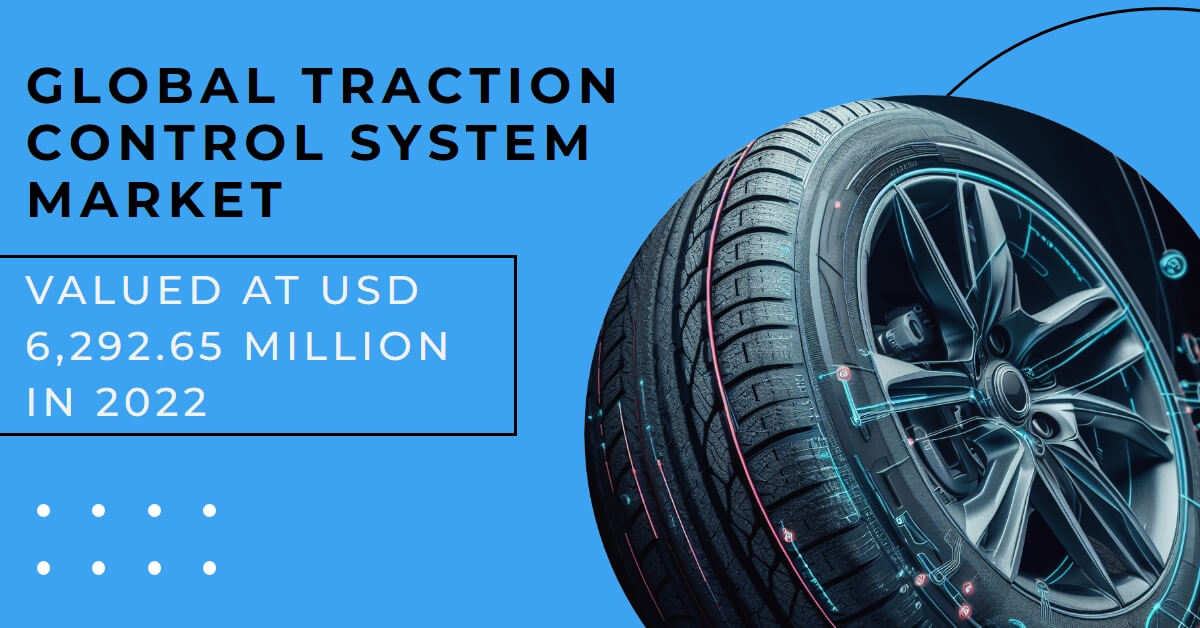In recent years, the global traction control system (TCS) market has witnessed remarkable growth, driven by technological advancements and a surge in automotive sales across the globe. TCS plays a pivotal role in enhancing vehicle stability and control by preventing wheel spin during acceleration. Here, we delve into the current state of the market, highlight leading companies, explore driving factors, assess market size, identify key regions, and provide a glimpse into the future.
Global Scenario of the Market:
The global traction control system market is experiencing robust growth owing to the increasing demand for vehicles equipped with advanced safety features. With the automotive industry’s continuous evolution, the integration of TCS has become a standard in modern vehicles. This trend is further fueled by a growing awareness of road safety and stringent regulations mandating the incorporation of safety systems. As a result, the market is witnessing a steady rise in adoption on a global scale.
Leading Companies Globally:
Several companies are at the forefront of shaping the traction control system market. Key players include:
ADVICS Co., Ltd
Autoliv Inc
Continental AG
Denso Corporation
Hitachi Automotive Systems Americas Inc
Hyundai Mobis Co., Ltd
Nissin Kogyo Co., Ltd
Robert Bosch GmbH
WABCO Holdings Inc
ZF Friedrichshafen AG
These industry giants are driving innovation, developing cutting-edge technologies, and establishing a strong foothold in the global market.
Market Driving Factors:
Several factors are propelling the growth of the traction control system market:
Stringent Safety Regulations: Governments worldwide are imposing stringent regulations mandating the incorporation of advanced safety features in vehicles, compelling manufacturers to integrate traction control systems.
Rising Consumer Awareness: Increasing awareness among consumers regarding the importance of vehicle safety is driving the demand for TCS-equipped vehicles.
Technological Advancements: Continuous advancements in sensor technologies, electronics, and communication systems are enhancing the effectiveness of traction control systems, making them more reliable and efficient.
Market Size:
The traction control system market was valued at USD 6,292.65 million in 2022 and is expected to grow at a CAGR of 9.24% during the forecast period (2023-2030). This substantial market size indicates the increasing demand for TCS, reflecting its integral role in modern vehicles and the automotive industry.
Leading Regions:
Key regions contributing significantly to the traction control system market include North America, Europe, Asia-Pacific, and Latin America. These regions are witnessing increased adoption of TCS due to the presence of established automotive industries, stringent safety norms, and a growing emphasis on road safety.
Forecast:
The future outlook for the global traction control system market appears promising, with sustained growth anticipated. The market is expected to witness continuous advancements in technology, further driving the adoption of TCS. As automotive manufacturers increasingly prioritize safety features, the traction control system is poised to play a pivotal role in shaping the future of the automotive industry. The forecast suggests a steady rise in market size and continued expansion, with TCS becoming an integral component of vehicles worldwide.


